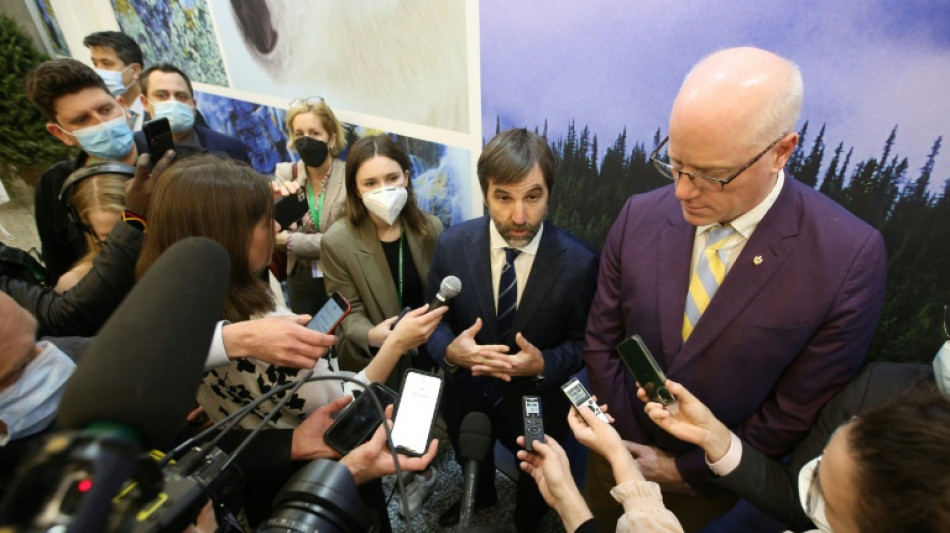
-
 European basketball pioneer Schrempf lauds 'global' NBA
European basketball pioneer Schrempf lauds 'global' NBA
-
Denmark, Greenland in crunch White House talks as Trump ups pressure

-
 Mitchell hits ton as New Zealand down India to level ODI series
Mitchell hits ton as New Zealand down India to level ODI series
-
Syrian army tells civilians to stay away from Kurdish positions east of Aleppo
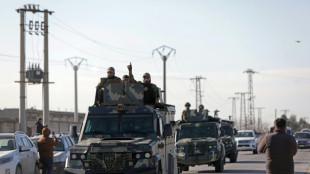
-
 Spurs sign England midfielder Gallagher from Atletico Madrid
Spurs sign England midfielder Gallagher from Atletico Madrid
-
Russian captain tried to avoid North Sea crash: court

-
 Battle over Chinese-owned chipmaker Nexperia rages in Dutch court
Battle over Chinese-owned chipmaker Nexperia rages in Dutch court
-
Transatlantic ties 'disintegrating': German vice chancellor
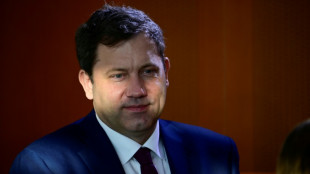
-
 Five problems facing Ukraine's new defence chief
Five problems facing Ukraine's new defence chief
-
Italian influencer Ferragni acquitted in Christmas cake fraud trial

-
 UK interior minister says 'lost confidence' in police chief over Maccabi fan ban
UK interior minister says 'lost confidence' in police chief over Maccabi fan ban
-
Ryanair hits out at 'stupid' Belgium over aviation taxes

-
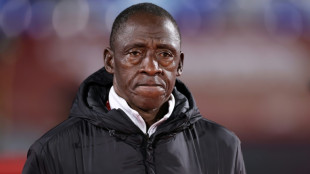 Burkina Faso sack coach Traore after AFCON exit
Burkina Faso sack coach Traore after AFCON exit
-
African manufacturers welcome US trade deal, call to finalise it
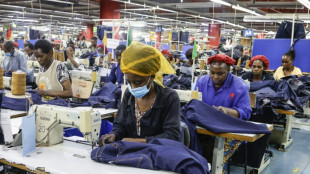
-
 What happens when fire ignites in space? 'A ball of flame'
What happens when fire ignites in space? 'A ball of flame'
-
Death of author's baby son puts Nigerian healthcare in spotlight

-
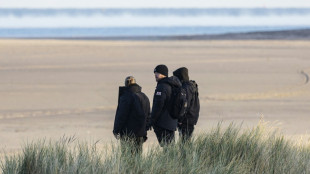 France bans 10 British anti-migrant activists
France bans 10 British anti-migrant activists
-
2025 was third hottest year on record: climate monitors
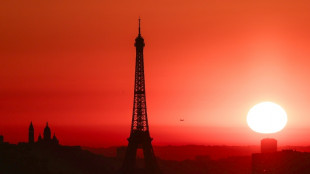
-
 Hydrogen planes 'more for the 22nd century': France's Safran
Hydrogen planes 'more for the 22nd century': France's Safran
-
Julio Iglesias, the Spanish crooner who won global audience
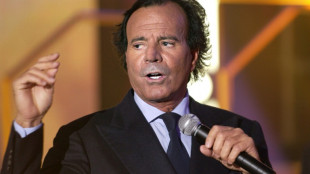
-
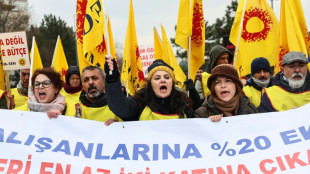 'We can't make ends meet': civil servants protest in Ankara
'We can't make ends meet': civil servants protest in Ankara
-
UK prosecutors appeal Kneecap rapper terror charge dismissal

-
 UK police chief blames AI for error in evidence over Maccabi fan ban
UK police chief blames AI for error in evidence over Maccabi fan ban
-
Oil prices extend gains on Iran unrest

-
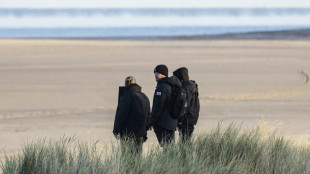 France bans 10 UK far-right activists over anti-migrant actions
France bans 10 UK far-right activists over anti-migrant actions
-
Every cent you take: Sting, ex-Police band mates in royalty battle
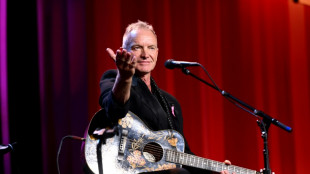
-
 Thailand crane collapses onto train, killing 32
Thailand crane collapses onto train, killing 32
-
Amateur stuns star-studded field to win 'One Point Slam' in Melbourne

-
 Italian influencer Ferragni awaits verdict in Christmas cake fraud trial
Italian influencer Ferragni awaits verdict in Christmas cake fraud trial
-
Louvre and other French museums fare hikes for non-European visitors

-
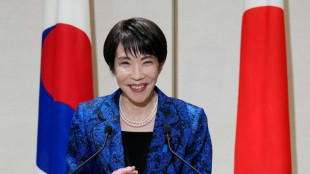 Japan's Takaichi to dissolve parliament for snap election
Japan's Takaichi to dissolve parliament for snap election
-
Dutch court hears battle over Nexperia

-
 World-first ice archive to guard secrets of melting glaciers
World-first ice archive to guard secrets of melting glaciers
-
Ted Huffman, the New Yorker aiming to update top French opera festival

-
 Ofner celebrates early then loses in Australian Open qualifying
Ofner celebrates early then loses in Australian Open qualifying
-
Singer Julio Iglesias accused of 'human trafficking' by former staff

-
 Luxury retailer Saks Global files for bankruptcy
Luxury retailer Saks Global files for bankruptcy
-
Asian markets mostly up with politics bump for Tokyo

-
 Iran vows fast trials over protests after Trump threat
Iran vows fast trials over protests after Trump threat
-
China's trade surplus hit record $1.2 trillion in 2025

-
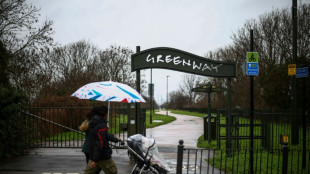 Trail goes cold in UK abandoned babies mystery
Trail goes cold in UK abandoned babies mystery
-
Japan's Takaichi set to call February snap election: media
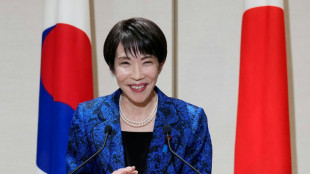
-
 Scientist wins 'Environment Nobel' for shedding light on hidden fungal networks
Scientist wins 'Environment Nobel' for shedding light on hidden fungal networks
-
From bricklayer to record-breaker: Brentford's Thiago eyes World Cup berth

-
 Keys overcomes serve demons to win latest Australian Open warm-up
Keys overcomes serve demons to win latest Australian Open warm-up
-
As world burns, India's Amitav Ghosh writes for the future

-
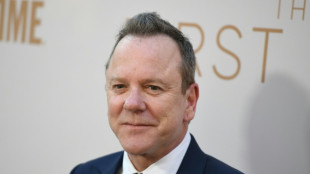 Actor Kiefer Sutherland arrested for assaulting ride-share driver
Actor Kiefer Sutherland arrested for assaulting ride-share driver
-
Gilgeous-Alexander shines as Thunder halt Spurs losing streak

-
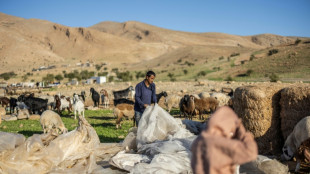 West Bank Bedouin community driven out by Israeli settler violence
West Bank Bedouin community driven out by Israeli settler violence
-
Asian markets mixed, Tokyo up on election speculation


UN nature talks teeter on brink as ministers arrive for home stretch
Hopes of sealing a historic "peace pact with nature" at a United Nations biodiversity summit will soon rest on the world's environment ministers, arriving in Montreal for the final phase of talks beginning Thursday.
Stark divisions remain to be bridged, foremost among them the subject of how much developed countries will pay the developing to help them save ecosystems, and whether there should be a new, dedicated fund for this purpose.
At stake is the future of the planet and whether humanity can roll back habitat destruction, pollution and the climate crisis, which are threatening an estimated million species with extinction.
The draft agreement contains more than 20 targets, including a cornerstone pledge to protect 30 percent of the world's land and seas by 2030, eliminate harmful fishing and agriculture subsidies, tackle invasive species and reduce pesticides.
"I hope what we would have at the end of this... is a Paris moment," said Zakri Abdul Hamid, science advisor for the Campaign for Nature, referencing the landmark climate accord that agreed to hold long-term warming to 1.5 degrees Celsius.
"Decades of study have also clarified what the world must do," he added.
In the absence of heads of state and government, more than a hundred ministers will have to drag the text, three years in the making, over the finish line.
But its success still hangs in the balance after disagreements over the thorny issue of biodiversity financing led to a walkout by negotiators from developing nations overnight Tuesday and a temporary pause in talks.
- New fund sought -
The Global South, home to most of the world's biological diversity, wants a new global biodiversity fund (GBF), something rich countries oppose -- proposing instead making existing financial mechanisms more accessible.
This debate mirrors a similar disagreement during recent UN climate talks in Egypt on creating a "loss and damages" fund for the most climate-vulnerable nations -- though that demand was eventually met.
Dozens of nations, including Brazil, India, Indonesia and many African countries are also seeking funding of $100 billion yearly, or one percent of global GDP, until 2030.
Current financial flows from high-income countries to lower income ones are in the order of $10 billion per year.
A crisis meeting of heads of delegations, organized on Wednesday by China, which is chairing the meeting, brought negotiators back to the table following the breakdown.
A Western negotiator who declined to be named told AFP: "The African group wants to reach an agreement with money in front, other developing countries too, but Brazil is using the financial question to derail the process."
The source said the Brazilian delegation is still following the policies of outgoing far-right president Jair Bolsonaro, who is very close to the agricultural industry, which is hostile to reducing pesticide use.
Nevertheless, developing countries are angered by what they see as a lack of ambition.
"This has led to the negotiations now being on the edge of a full breakdown," said Innocent Maloba of WWF International.
Beyond the moral implications, there is the question of self-interest: $44 trillion of economic value generation -- more than half the world's total GDP -- is dependent on nature and its services.
The summit has failed to garner the same level of attention as the UN climate meeting held in Egypt in November, which brought together more than a hundred world leaders.
This meeting is being held in Canada after China declined to host because of its strict Covid rules, and Canada's Prime Minister Justin Trudeau has been the only leader in attendance.
I.Saadi--SF-PST


